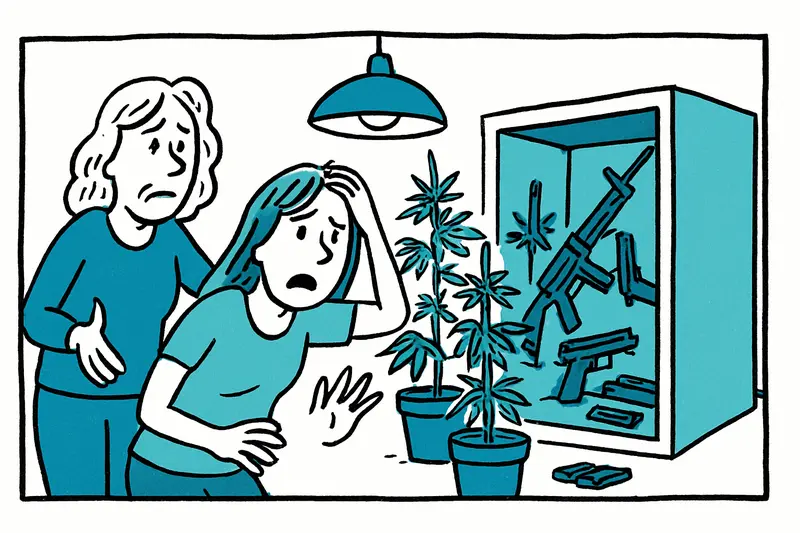
Fire in Moscari Uncovers Professional Marijuana Cultivation and Weapons Arsenal
A fire in a house in Moscari led to the discovery of a well-organized indoor grow operation and an extensive cache of weapons. A 41-year-old mother and her 18-year-old daughter were arrested.
Fire in Moscari Uncovers Professional Marijuana Cultivation and Weapons Arsenal
A residential house in Moscari, municipality of Selva, became the scene of a series of issues after a Fire in Moscari Uncovers Professional Marijuana Cultivation and Weapons Arsenal on Monday that go beyond a local incident. Firefighters, the Guardia Civil and the local police discovered a technically equipped indoor cannabis cultivation setup during their inspection. Officers arrested a 41-year-old woman and her 18-year-old daughter on suspicion of drug trafficking and illegal weapons possession. Seized items included around 14 kilograms of marijuana, over one kilogram of amphetamines, hashish, methadone, almost €5,000 in cash and a large assortment of weapons and ammunition.
Key question
How could such an elaborate cultivation facility develop in the middle of village life without neighbors or authorities intervening earlier?
The facts are clear: the house contained an indoor grow with lighting and ventilation and a drying room. Forty-three specialized lamps were recovered, along with several hundred rounds of various calibers, two carbines, one pistol, 14 air guns, a crossbow, stun guns and bludgeoning tools. Such finds suggest organized, planned activity rather than amateur tinkering in a basement.
Critical is the combination of drug cultivation and a large weapons cache. Weapons like carbines and a pistol plus 850 cartridges increase the danger to the surrounding area. It is not only a criminal law issue; a fire in a house with such stores can lead to explosions, toxic fumes and additional victims. That the case was only uncovered by a fire underlines the risk: had the fire not occurred, the operations might have continued for months.
What is often missing in public debate
We often talk about young people and drugs, as in Plants in the trunk: Arrest in Colonia de Sant Jordi raises questions, or about spectacular raids in commercial properties such as the Major raid in Mallorca: Arrest of an alleged clan leader raises big questions. Rarely, however, do we discuss the primitive safety risk to neighborhoods, the tricks used to hide odors and electricity use, or the role of easy availability of cultivation equipment, as examined in Raid in Son Oliva: Three Women Arrested – Are Cannabis Clubs Just a Front for Trafficking?. Also little noticed are the family structures behind such cases. That a mother and daughter were arrested raises questions about how economic pressure, addiction and family dynamics interact.
An everyday scenario from Selva
Imagine the Carrer Major of Selva on a cold November evening: church bells, a barking dog, and in the background the low hum of a heating system. Right there, in a side street branching off to Moscari, stands an unassuming house. Neighbors may have noticed nothing more than an occasional faint smell, a slightly increased electricity bill or the comings and goings of a few people. In small towns a lot is tolerated; in case of doubt people prefer to stay silent. The discovery by the fire felt to some like a wake-up call, for others like a shock at how close the danger had been.
Concrete approaches to solutions
- Tighten electricity checks: Unusually high consumption in residential buildings should be investigated more quickly. The problem is not that people use electricity, but that targeted manipulations often go undetected. Municipal meter readings and alerts from utilities can raise the alarm earlier.
- Expand reporting channels: Anonymous reporting options for neighbors make it easier to report strange smells, nighttime activity or unusual material conditions. Fear of conflict discourages reports; a low-threshold channel could change that.
- Regulate the sale of cultivation equipment: Devices, lamps and ventilation systems are legally sold but are frequently used for illegal plantations. Advice and oversight in retail, combined with information obligations, would be one approach.
- Social prevention: Especially in cases involving family members, local social services, counseling offers and support for unemployment or school problems can help reduce economic motives for criminal actions.
Conclusion
The find in Moscari is more than a criminal police report. It shows how closely everyday life and organized crime can intertwine in small communities. The lesson is clear: prevention needs more than inspections and raids; it needs low-threshold reporting channels, better cooperation between utilities, authorities and neighborhoods, and services that support families in difficult situations. Without such steps the risk remains that another fire or other accident will reveal something similar.
The case will continue to be pursued legally. For the people in Selva the question remains: how safe do we feel in our own homes if next door there are things stored that endanger lives? Answers to that must be sought locally and concretely.
Read, researched, and newly interpreted for you: Source
Similar News
Knife in the Taxi: When Rides to Son Banya Become a Trap
A taxi driver from Calvià was picked up in Peguera, driven to Son Banya and forced at knifepoint to hand over €50. The a...
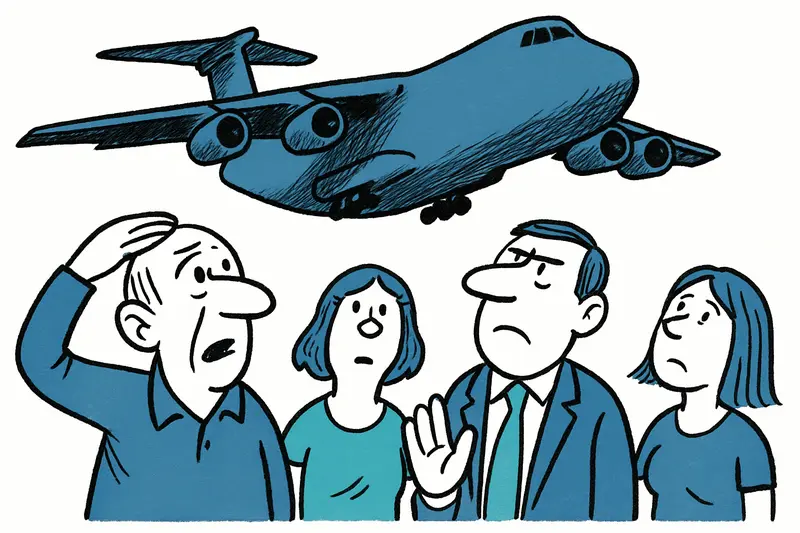
When the Galaxy Roars Over Us: A Reality Check for Mallorca
A US transport aircraft and several B-2 bombers recently flew near Mallorca — time to ask questions about air safety, tr...
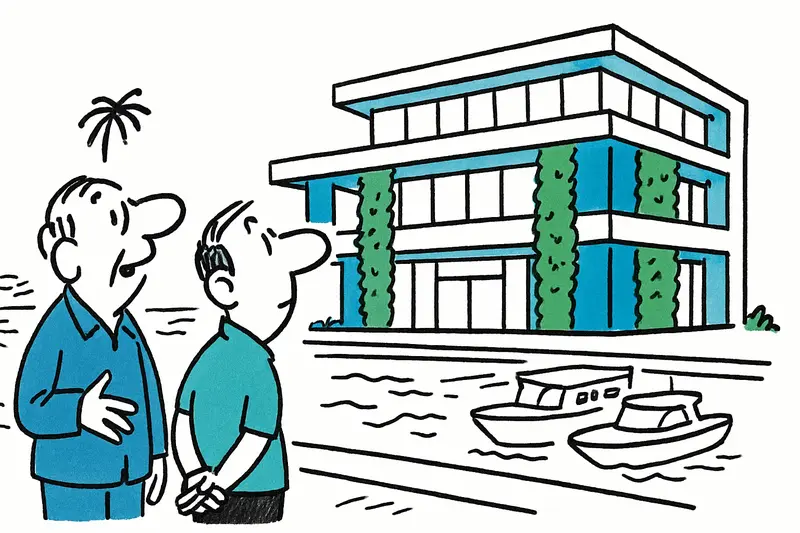
New Look at the Harbor: Club de Mar Gives Palma a Fresh Face
After five years of construction and around €84 million, the new Club de Mar at Porto Pi is complete: modern glass façad...
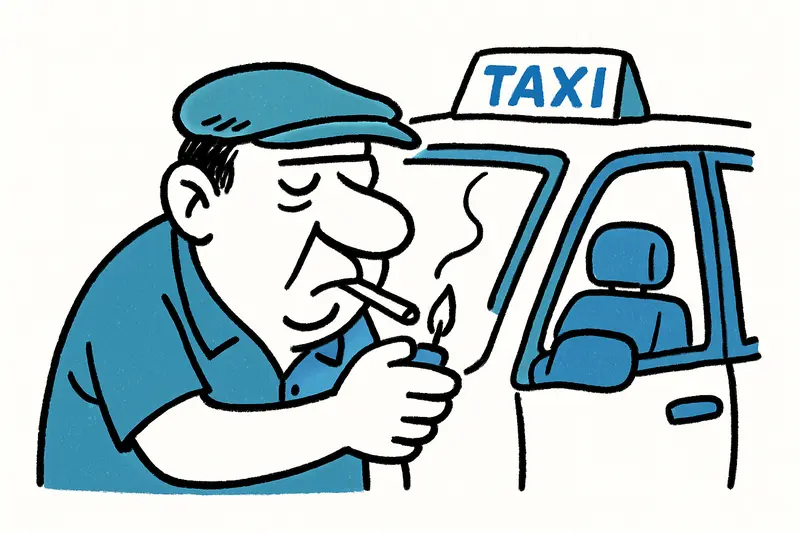
When Oil Becomes More Expensive: What a New Middle East Escalation Would Mean for Mallorca
A flare-up of the conflict in the Middle East could, via rising oil prices, burden airfares and everyday life on Mallorc...
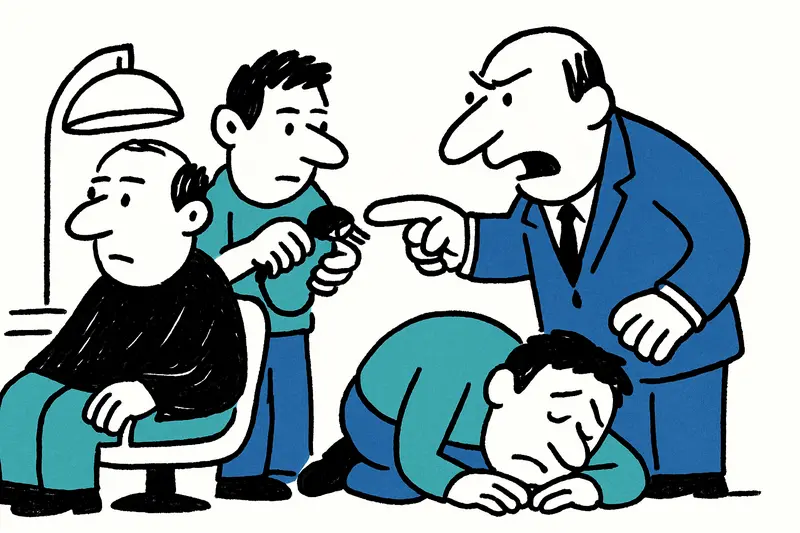
In the Heart of Palma: How Workers in Salons and Restaurants Fell into Exploitation
A National Police raid uncovered in Palma de Mallorca that people without residence papers were forced to work up to 13 ...
More to explore
Discover more interesting content

Experience Mallorca's Best Beaches and Coves with SUP and Snorkeling

Spanish Cooking Workshop in Mallorca
